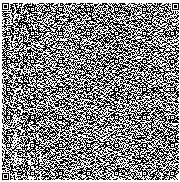Let's say I have the following scenario. I have QR Code, Eddystone and/or NFC which contains IP address, with which, my client side application communicates. Let's say this IP address can vary from user to user (or let's say from entity to entity, it can be multiple users). Is there a way to protect these "data holders" (QR Code, Eddystone and/or NFC) against spoofing, i.e. an attacker won't be able to replace my QR code with his own, without my application noticing it?
Size limits
- Eddystone - 17 bytes (all used :-/ )
- QR Code - 4,296 characters (+- 60 used)
- NFC - 125 bytes (+- 60 used)
Each IP address can have its own certificate which I do not know in advance. The server is mine but certificate can be replaced by admin which I do not control.
